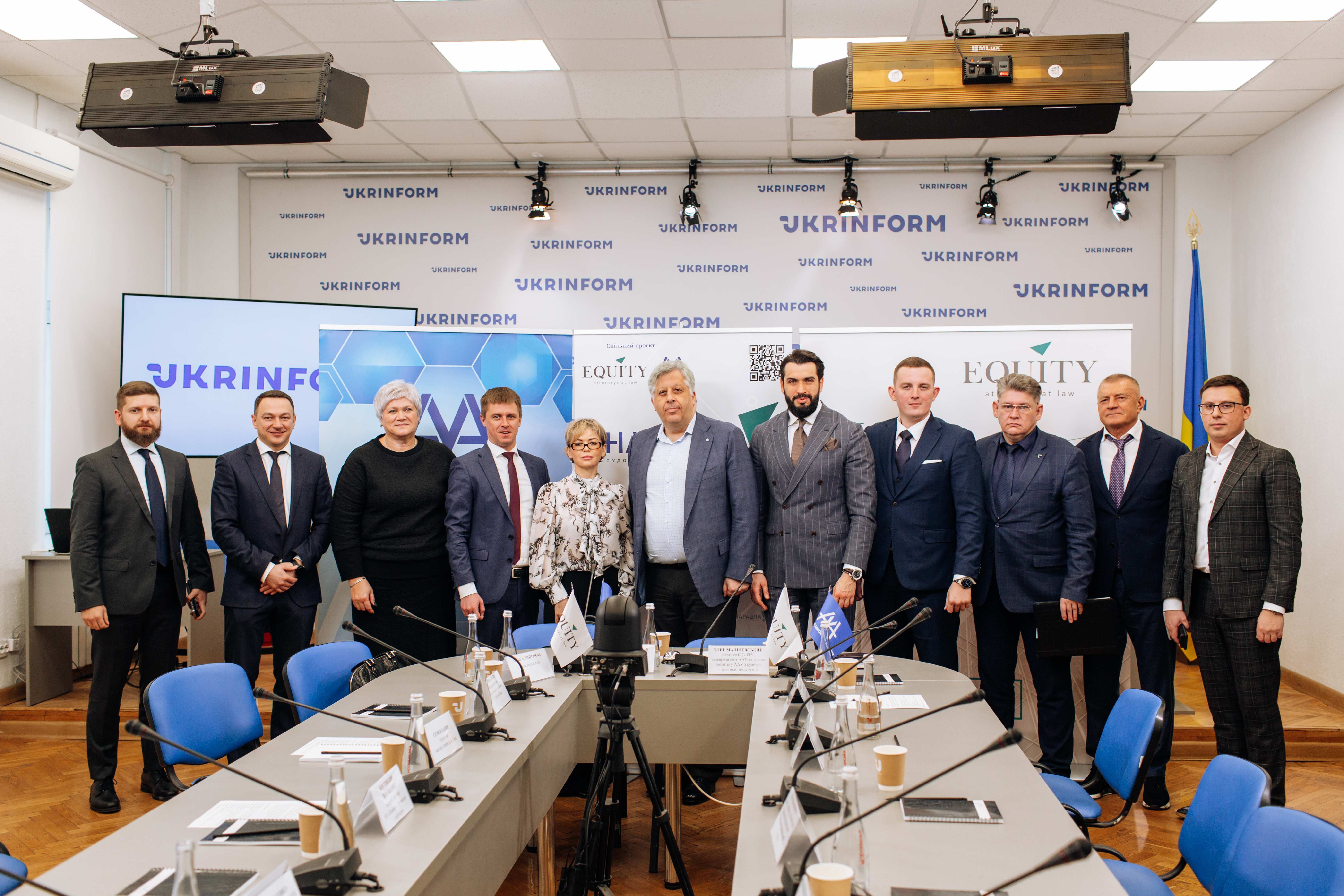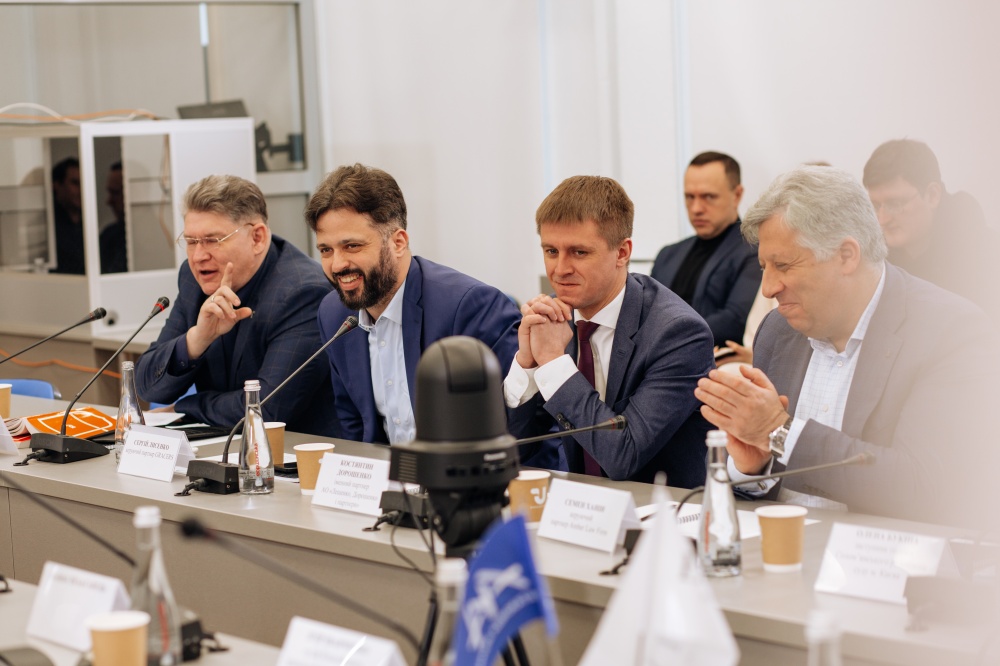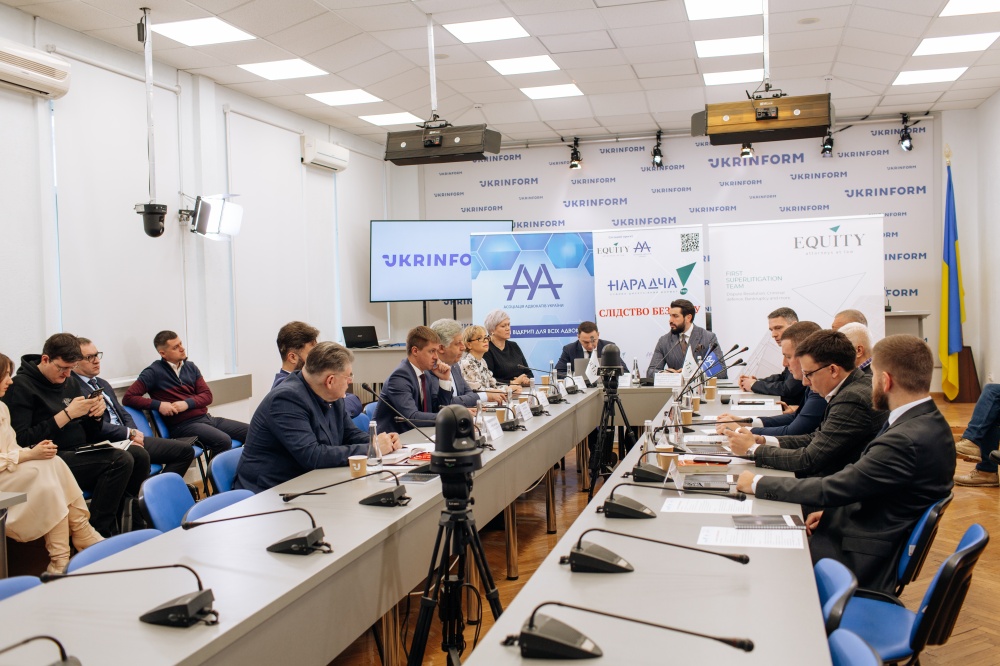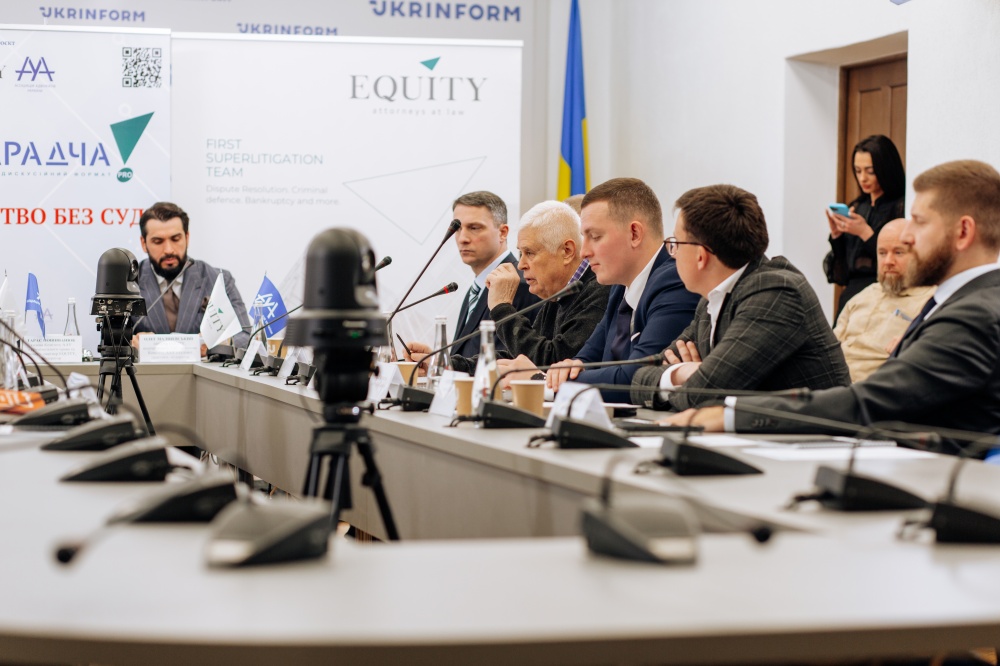EQUITY has opened the season of the Naradcha PRO: Investigation without trial

EQUITY together with The Association of advocates of Ukraine held a joint discussion Naradcha PRO: INVESTIGATION WITHOUT TRIAL.
"Today's discussion is aimed at discussing the problems related to judicial control over pre-trial investigation, preventing arbitrary interference of investigative authorities with fundamental human rights - freedom and personal inviolability, peaceful property ownership, and other rights and freedoms. We have gathered here to agree on common rules, to define red lines, crossing which is equally dangerous for everyone" - the moderators, EQUITY partners Oleg Malinevskiy and Taras Poshivanyuk, started the discussion.
Representatives of the judiciary, Higher Qualification Commission of Judges of Ukraine, academics and the legal community joined the public discussion of the Naradcha PRO.
Taras Poshivanyuk, Partner at EQUITY, stressed that this issue has become a threatening one over the past two years due to the pre-trial investigation being conducted without the participation of investigating judges or judicial control.

During the discussion, Serhiy Lysenko, Managing Partner at Gracers Law Firm, emphasized the importance of public control over the legality of the investigation, stressing: "the question is not about the law, the question is about all of us, how we implement it."
Roman Ignatov, Head of the High Qualification Commission of Judges of Ukraine, and Ihor Ivanchenko, Judge of the Criminal Cassation Court in the Supreme Court, also shared their views on the issues of searches, their urgency, motives and transparency.
Ihor Ivanchenko noted that the possibility of the Supreme Court reviewing individual cases of illegal searches may be one of the steps to solve this problem, as the existing legislative regulation is sometimes insufficient.
In particular, Roman Ignatov emphasized the importance of the role of law enforcement agencies and their legal awareness in conducting urgent searches.

"Decisions should be primarily legal, not fair. After all, the main thing is human rights and the state should not interfere with those rights and freedoms that are enshrined at the international level and implemented in criminal justice," pointed out Kostyantyn Doroshenko, partner at "Leshchenko, Doroshenko & partners".
During the discussion, Semen Hanin, Managing Partner at Amber Law Firm, and Oleksiy Baganets, Honored Lawyer of Ukraine, Candidate of Juridical Sciences, Honorary Employee of the Prosecutor's Office of Ukraine, 2nd Class State Counselor of Justice, proposed steps of legislative work on mistakes, including additional interpretation of some terms, review of the motives for the urgency of searches, solving the problem of compliance of all laws with the Constitution of Ukraine and clarification of the new constitutional powers of the Prosecutor's Office of Ukraine.
Vasyl Shakun, Doctor of Juridical Sciences, Professor and Full Member of the National Academy of Legal Sciences of Ukraine, shared his views on the line between political will and official negligence, and emphasized the problem of lack of free access to justice.

Oleksiy Nosov, Partner at Miller Law Firm, suggested conducting an audit of activity law enforcement agencies to determine the goals of their functioning and review the results of what has already been done. "This will give an understanding of what further reform strategy should be adopted in relation to the work of various bodies," said Oleksiy.
Bohdan Gliadyk, Partner at Evidence, raised the issue of staff shortages, which led to the fact that no appeals were considered in time over the past year.
In the context of this issue Olena Bukina, Deputy Chairman of the of Solom'yanskiy District Court of Kyiv and Andriy Ivaniv, Counsel at EQUITY, have focused that the process of the case consideration also suffers from imperfect application of the norm, which leads to closed consideration of the case and its secrecy, when the defense cannot receive any information on the case.
We thank all the participants for a three-hour productive discussion. We are confident that the future developments will become catalysts for changes and will bring positive changes to criminal justice.
After all, "The law and the constitution are the only criteria that the state is in order."
The recording of the discussion is available below:
